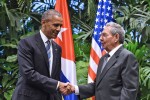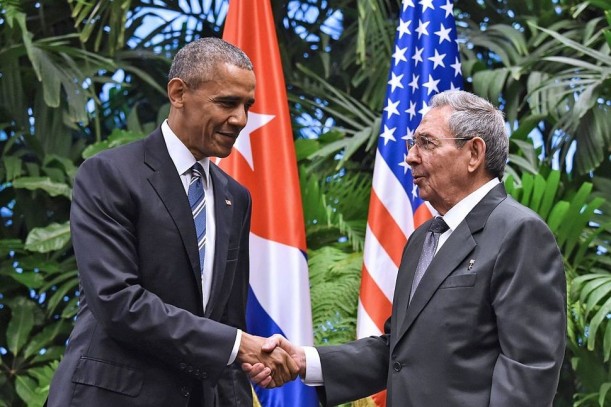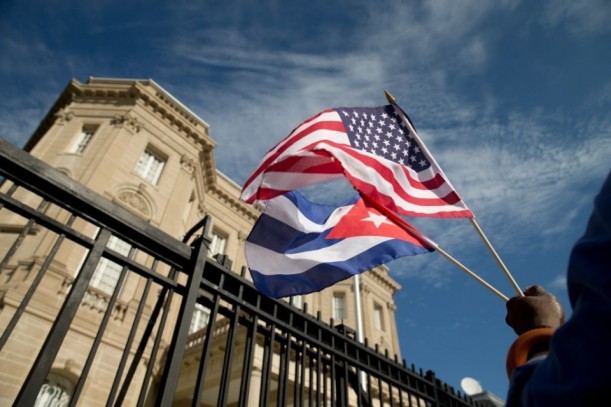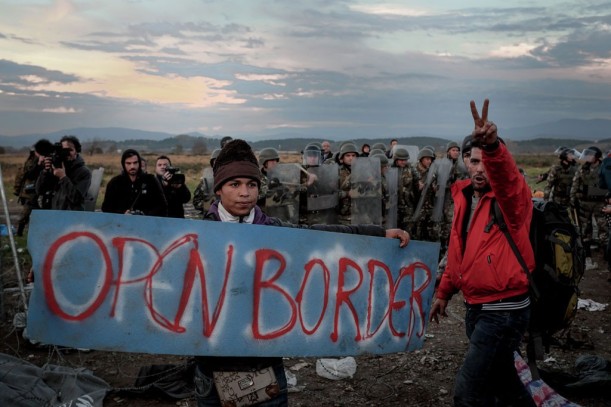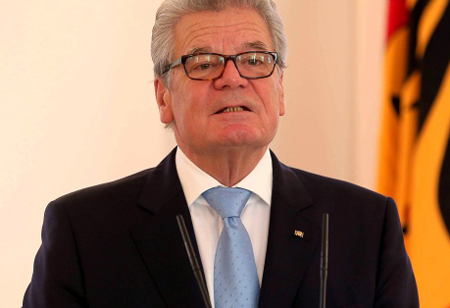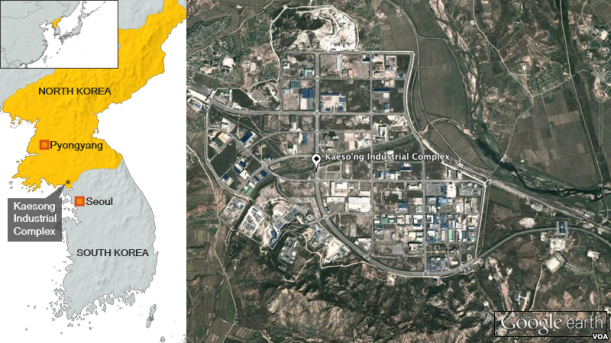John Rizos
Russian Prime Minister Vladimir Putin signed an executive order on Saturday, February 18, 2017 in which he declared recognition of identification documents issued by eastern Ukrainian separatist authorities.[1] The order allows Ukrainian citizens and stateless persons who live in certain parts of the Donetsk and Lugansk regions of Ukraine to enter Russia without a visa or a visa application[2] by presenting civil registration documents issued by rebels in eastern Ukraine.[3] Documents include identification documents, diplomas, birth certificates, marriage certificates, and vehicle registration plates,[4] which would allow people to not only enter and travel to Russia, but also to work and study in Russia.[5] Ukrainian separatist authorities began distributing passports in January 2017.[6] It is estimated that 48,000 passports have been distributed in the region.[7]

Ukrainian forces have been fighting pro-Russia and Russia-backed separatist rebels in the Donbass area of eastern Ukraine since May 2014[8], following a referendum vote in favor of self-autonomy from the area’s two main regions, Donetsk and Lugatsk, to be recognized as the Donetsk People’s Republic (DPR) and the Lugansk People’s Republic (LPR)[9].
On September 5, 2014, the Ukrainian Government and the pro-Russian separatists signed the Minsk Protocol in order to implement a resolution and a ceasefire agreement under the auspices of the Organization of Security and Cooperation in Europe (OSCE). The Protocol was comprised of 12 objectives, including an immediate bilateral ceasefire, withdrawal of illegal armed groups, decentralization of power and local elections in Donetsk and Lugatsk, OSCE monitoring, and continuation of national dialogue.[10] On September 19, 2014, there was follow-up agreement for the removal of heavy artillery from a certain area and the continued OSCE monitoring.[11] However, the Protocol was a failure as intense fighting and violations continued from both sides.[12]

On February 12, 2015 Vladimir Putin, Angela Merkel, Francois Hollande, Petro Poroshenko signed the Minsk II agreement in order to implement and to add onto the measures from the Minsk Protocol.[13] The measures were similar to the Protocol, however, they also included a renewed ceasefire to be implemented by February 15, 2015, constitutional reforms and decentralization from Donetsk and Lugatsk by the end of 2015, safe delivery of humanitarian aid based on an international mechanism, withdrawal of all foreign-armed formations, full social and economic restoration in affected areas, and full Ukrainian control over conflict-zoned Russian border[14]. The leaders also agreed, under a joint declaration, that they were committed to Ukraine’s sovereignty and territorial integrity.[15] The UN Security Council adopted Resolution 2202 in February 17, 2015, in which it endorsed the ceasefire agreements and the full implementation of the Minsk II agreement.[16]
The Minsk II stalemate was eventually disrupted by resurgences from both sides,[17] mainly due to the failures by Ukraine to adapt to the DPR’s and the LPR’s political and economic changes, specifically, regarding constitutional reforms.[18] The Russian Foreign Ministry stated that the order is temporary[19] and based on humanitarian grounds[20] until the Minsk deal and the Ukrainian obligations towards Donetsk and Lugansk have been implemented.[21]
Although the order has been well-received by the DPR and the LPR, Ukrainian and US officials have declared it contradictory to any peace agreements between Russia and Ukraine. Ukraine President Petro Poroshenko has labeled the order as a violation of international law[22] and the Minsk agreements[23]. Ukraine Foreign Minister Pavlo Klimkin stated that the Russian order is an intentional military and humanitarian escalation.[24] The US Embassy to Ukraine stated that it contradicts the agreed-upon goals of the Minsk Agreements.[25] Following a meeting with US Vice President Michael Pence, Poroshenko rejoiced in the US’s support of Ukraine.[26]

Further, German and EU officials have stated that they will not recognize any documents issued by the separatist authorities[27] as they, alongside Russia’s order, contradict the Minsk Agreements by undermining Ukrainian unity and territorial integrity.[28] The OSCE also declared that the order and the distribution of documents contradict any peace-settlement objectives between Ukraine and Russia.[29] The OSCE Chairmanship declared that documents, such as the passports, are only valid on a sovereign territory, such as Ukraine, if they are issued by internationally recognized authorities.[30] The unilateral actions of document distribution and recognition jeopardize peaceful resolution, especially if they are not finalized under the auspices of the OSCE.[31] Such actions “chill” relations among the parties involved, which result into difficult implementation of the objectives in the Minsk Agreements.[32]
Russian Foreign Minister Sergey Lavrov does not believe that the order violates international law, since the law “does not prohibit the recognition of documents needed to implement the rights and freedoms guaranteed by the authorities which are not internationally-recognized.”[33] Contrarily, Lavrov rebutted accusations of international law violations by OSCE Secretary-General Lamberto Zannier by stating that the DPR and the LRP authorities and leaders were actually recognized parties to the conflict by signing the Minsk Agreements, which had been approved by the UN Security Council.[34]
Kremlin Spokesman Dmitry Peskov agreed that the order does not violate international law as it is merely “the de jure alignment of the situation that existed de facto.”[35] The spokesman indicated that the order is based solely on humanitarian grounds instead on grounds for recognizing statehood by claiming that the embargo on the Donbass by Kiev prohibits persons in the DPR and LPR from renewing and/or acquiring necessary documents to seek refuge or asylum in another county.[36]
Russia’s order seems dubious. The Foreign Minister is playing “fence politics” by switching Russia’s legal argument for recognizing separatist authorities in order to not upset the international lawmakers or to divert them from investigating the possibility that Russia is providing actual support to the separatists. Further, basing the order on humanitarian grounds is a contrived effort for persuading the rest of the world that the order is necessary, instead of damaging to Ukraine’s integrity and beneficial to Russia’s stance. The order is in violation of the peace agreements and of international law, as it is enforced unilaterally by Russia, without accordance to the Minsk Agreement. It also demonstrates recognition of competent authorities, which is an indicator of recognition of statehood, without consultation of the agreed-upon self-autonomy Minsk objectives. Since the UN Security Council, which operates on international law, has adopted and endorsed the Minsk Agreements, the violations also violate UN law and, thus, international law.
John Rizos is a 3L at the University of Baltimore School of Law with a concentration in International Law. He has an interest in human rights and international criminal law. In addition to being a CICL Fellow, John has served as the Secretary for Phi Alpha Delta Law Fraternity and has completed HarvardX’s online course, “Humanitarian Response to Conflict and Disaster.” In June 2016, John was a member of the Fellows team that, under the supervision of Professor Moore, assisted in drafting an amicus brief to the Extraordinary Chambers in the Courts of Cambodia, which was later approved and published. John graduated with honors from Towson University with a BA in International Studies (2013). He has interned at the Press Office of the Greek Embassy in Washington, D.C. and the International Civil Advocacy Network (ICAN), a non-profit organization advocating for women’s rights in the Middle East. John currently serves as a MD Rule 19 Student-Attorney with the Juvenile Justice Project at the University of Baltimore.
[1] http://english.cctv.com/2017/02/19/ARTIBZihT9cbzHu5jM3SPOSW170219.shtml
[2] http://english.cctv.com/2017/02/19/ARTIBZihT9cbzHu5jM3SPOSW170219.shtml
[3] http://www.euronews.com/2017/02/20/russia-defends-decision-to-recognise-rebel-passports-in-eastern-ukraine
[4] http://www.globaltimes.cn/content/1033802.shtml
[5] http://www.globaltimes.cn/content/1033802.shtml
[6] http://www.globaltimes.cn/content/1033802.shtml
[7] http://www.euronews.com/2017/02/20/russia-defends-decision-to-recognise-rebel-passports-in-eastern-ukraine
[8] http://www.euronews.com/2017/02/20/russia-defends-decision-to-recognise-rebel-passports-in-eastern-ukraine
[9] https://www.theatlantic.com/international/archive/2014/05/referendum-on-self-rule-in-ukraine-passes-with-over-90-of-the-vote/362062/
[10] http://uk.reuters.com/article/ukraine-crisis-summit-idUKL5N0VK2C520150210
[11] http://www.europarl.europa.eu/RegData/etudes/BRIE/2016/573951/EPRS_BRI(2016)573951_EN.pdf
[12] http://www.europarl.europa.eu/RegData/etudes/BRIE/2016/573951/EPRS_BRI(2016)573951_EN.pdf
[13] http://www.europarl.europa.eu/EPRS/EPRS-Briefing-548991-Minsk-peace-summit-FINAL.pdf
[14] http://www.europarl.europa.eu/RegData/etudes/BRIE/2016/573951/EPRS_BRI(2016)573951_EN.pdf
[15] http://www.europarl.europa.eu/EPRS/EPRS-Briefing-548991-Minsk-peace-summit-FINAL.pdf
[16] https://www.un.org/press/en/2015/sc11785.doc.htm
[17] http://uk.reuters.com/article/uk-ukraine-crisis-documents-russia-idUKKBN15Z1N5
[18] https://www.rt.com/news/378032-peskov-passports-ukraine-east/
[19] http://www.euronews.com/2017/02/20/russia-defends-decision-to-recognise-rebel-passports-in-eastern-ukraine
[20] http://uk.reuters.com/article/uk-ukraine-crisis-documents-russia-idUKKBN15Z1N5
[21] http://english.cctv.com/2017/02/19/ARTIBZihT9cbzHu5jM3SPOSW170219.shtml
[22] http://english.cctv.com/2017/02/19/ARTIBZihT9cbzHu5jM3SPOSW170219.shtml
[23] http://www.euronews.com/2017/02/20/russia-defends-decision-to-recognise-rebel-passports-in-eastern-ukraine
[24] http://en.interfax.com.ua/news/general/404643.html
[25] http://www.globaltimes.cn/content/1033802.shtml
[26] http://www.globaltimes.cn/content/1033802.shtml
[27] http://www.euronews.com/2017/02/20/russia-defends-decision-to-recognise-rebel-passports-in-eastern-ukraine
[28] http://uk.reuters.com/article/uk-ukraine-crisis-documents-russia-idUKKBN15Z1N5
[29] http://en.interfax.com.ua/news/general/404643.html
[30] http://en.interfax.com.ua/news/general/404643.html
[31] http://en.interfax.com.ua/news/general/404643.html
[32] http://en.interfax.com.ua/news/general/404643.html
[33] http://www.euronews.com/2017/02/20/russia-defends-decision-to-recognise-rebel-passports-in-eastern-ukraine
[34] https://dninews.com/article/russian-mfa-dpr-and-lpr-leadership-recognized-signing-minsk-agreements
[35] https://www.rt.com/news/378032-peskov-passports-ukraine-east/
[36] https://www.rt.com/news/378032-peskov-passports-ukraine-east/






